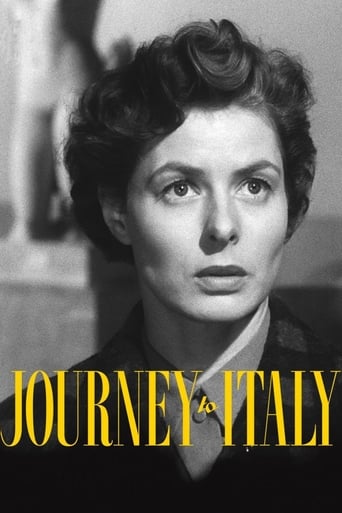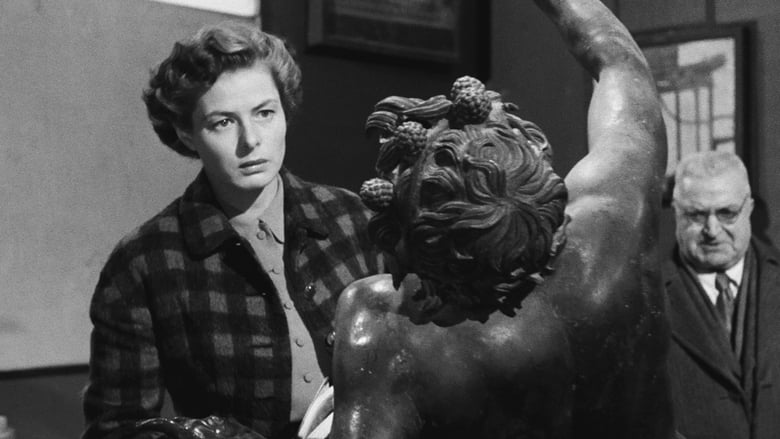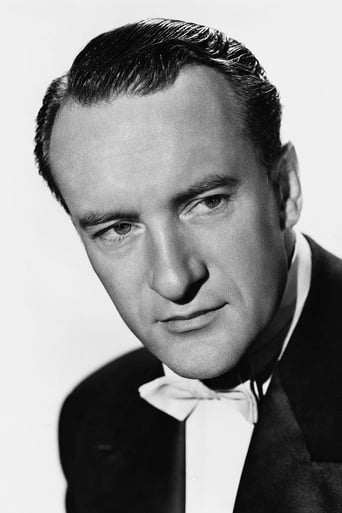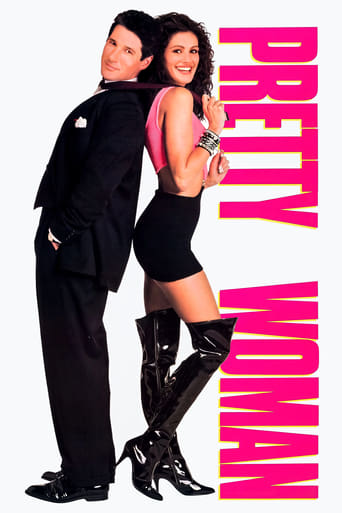Journey to Italy (1954)
This deceptively simple tale of a bored English couple travelling to Italy to find a buyer for a house inherited from an uncle is transformed by Roberto Rossellini into a passionate story of cruelty and cynicism as their marriage disintegrates around them.
Watch Trailer
Cast


Similar titles
Reviews
Lack of good storyline.
There is, somehow, an interesting story here, as well as some good acting. There are also some good scenes
The acting is good, and the firecracker script has some excellent ideas.
One of the worst ways to make a cult movie is to set out to make a cult movie.
Journey to Italy is a truly beautiful, and utterly relatable tale of two very different people, stuck in a defunct marriage, finding themselves, and love, in Italy. The city of Naples is displayed with utter class here--this movie is as much a call for tourism, as it is a love story. Many great museums, as well as macabre catacombs are displayed, as Katherine seeks distractions from her failing marriage. Rossellini knows he's got a gorgeous backdrop to tell his story, and doesn't waste it for a second. The conclusion had me moved to tears. If you get a chance to see it on Criterion's gorgeous blu-ray, absolutely give it a watch. It's well worth it.
The opening sequence sets the tone: a middle-aged English couple - wealthy, well-groomed, withdrawn, in an expensive Bentley (Bertone designed, no less) cabriolet; he's slouched in the passenger seat, asleep; she's driving, looking tired and ill-tempered. They're traveling to Naples to sell a house a deceased rich uncle, Homer, had bequeathed to his nephew, Alex (Sanders), who is accompanied by his wife, Katherine (Bergman). After we learn about the house sale, they fall silent, staring ahead. The rest of this exquisitely filmed story heightens the distance and lack of communication which forms the essential thematic core of an obviously failing - or already failed - marriage. Not only do they rarely talk, but they are both strangers in a strange land and ignorant of the Italian language - a master stroke by Rossellini, in my opinion, which further emphasizes their mutual alienation; but which also, ironically, forces them to acknowledge each other against their will. Alex pays only perfunctory notice of his wife when the occasion demands, Katherine finds fault in his obvious lack of interest; they converse in banalities mostly, except when she reminisces about the past - which annoys him; she likes to sees the sights, he says he's bored but ogles the local talent constantly; she does the touristy thing, alone, at museums, art galleries, volcanic sites etc, he goes to the Isle of Capri for more ... sights; she takes walks with a female friend, he goes out alone bar crawling and contemplates a prostitute....You get the picture: two people who might have been in love long ago, but are now searching, wondering, maybe even hoping their barren lives - there are no children, by mutual choice - can live again with just each other. Bergman and Sanders are perfect for the roles, and on camera all the time, either alone, with each other or in a group of friends or family. Camera work includes some obligatory scenic views - the black and white filming is suitably, wonderfully nostalgic - but most of the time, Rossellini uses medium to extreme close-ups to show every glance, frown, grimace, distaste, dislike, frustration, fear, anger, puzzlement etc on the faces of the tortured antagonists; and with barely the occasional ghost of a false smile, from one or the other. The dialogue is crisp, cutting and sometimes crushing as they dissect each others' accusations, inferences and inadequacies. The acting is so fine, so exact, it can be unsettling to see perhaps for some viewers. Overall, it seems the lack of communication and honesty is at the root of their remote relationship; or does their mutual remoteness simply amplify their failure to connect? Should they divorce? Should they keep trying? Those answers come at the end of their visit - together for the only time on an outing - to some archaeological ruins at Pompeii where she becomes overwrought by the graphic evidence of pervasive, instantaneous death by natural violence. She runs off, he follows, somewhat annoyed but also puzzled. He catches up as she reaches the Bentley. They drive off, silent, nonspeaking, uncommunicative ... until they come upon a large religious procession in which their car becomes entangled, forcing them to park and walk together, curious, and with the crowd, to find out what's happening.The crowd pushes, surges. She becomes separated from him, and is carried further away, calling to him. Urgently, frantically now, he pushes through, elbowing, shoving, trying to get to her as the crowd grows around them, until he finally reaches her - and where they also arrive at a resolution for their dilemma. Well ... the ending is arguably controversial, and for many reasons; even the final screen shot is a puzzle for me. However, for what it's worth I think Rossellini did the right thing commercially - even politically - but the wrong thing artistically. Beyond that I will leave it up to you to assess for yourself when you see this classic movie - as you should, perhaps.Recommended for all. Give this full score - nine out of ten (no movie is a perfect ten-ten).May 21, 2016
Journey To Italy is one of those films with recognisable names in front and behind the lens and appears to be very acclaimed, most notably ranking very high in They Shoot Pictures Don't They's top 1000, yet I don't personally know anyone who's a fan. Besides Martin Scorsese, I can't name anyone who vouches for it. In starting the film, it's difficult to see why it deserves such a noteworthy position. It's quite haphazardly produced with clunky framing, editing and exposition in its script. I suppose it's a necessary evil essential to all films but it didn't seem to have much life to it. Perhaps it was ahead of its time in some regard. Fortunately I love Ingrid Bergman and I felt her performance was remarkably subdued, particularly in her reaction shots. A lot internally going on there. Very whole-hearted compared to George Sanders who relies on bulky screen presence.The plot continues and dwindles as we follow the two characters independently exploring their impulses, Bergman inquiring the remains of Pompeii and Sanders experimenting with infidelity. It's difficult to be invested in such a neutral relationship, especially when the cameras don't really pick up the beauty of the scenery. The film hits fever pitch late and we swiftly come to the predictable conclusive moments and that's when something incredible happens. The film, or the version I watched, is a short 80 minutes and it must be all set to build to these final minutes. It becomes movie magic, both emotional in the characters and the suddenly electrifying camera-work. Even though the catalyst is something you can see coming, the film feels worth it for that satisfying sense of love in the end. It's a shame the film is so unbalanced and it could've delivered more treats along the way, but I guess I can kind of see what Marty sees in it. 7/10
(Spoilers) This is the story of an upper class English couple (Alexander and Katherine) traveling to Italy to settle up the sale of a villa that Alex had inherited from an uncle. From the fist scenes on we see the friction in the marriage--the fact that they take separate bedrooms is not a good sign. When either of the two hints that there may be some spark left to their marriage, the other quashes it with a contrary act or comment. When Alex suggests that they have never really known each other and perhaps they can start over, Katherine says, "Let's go down to the bar." During an argument, Alex haughtily tells Katherine that, "Of course there are a few things I don't like about you. Your lack of a sense of humor, your ridiculous romanticism." Each plays to the jealousy of the other throughout the movie.I did not feel that the actors were challenged to play beyond their comfort zone. Sanders can play a somewhat cynical, upper class Englishman without breaking a sweat and Bergman, while good, turns in a performance that is not particularly noteworthy, although just having her on screen is a plus. The dialog is quite stilted--in fact I thought the film had been dubbed into English until I did some lip reading to determine otherwise.The movie offers a bit of a travelogue for Naples and the surrounding area. Those scenes are captured during Katherine's solo sightseeing trips after Alex had gotten disgusted and headed off to Capri to stay with some friends. The urban scenes that Katherine sees as she drives to various attractions are the most artificially inserted I have seen. It is clear that Katherine is being filmed in a studio, and then some stock footage is being shown of street scenes. The filming at tourist highlights were the most enjoyable parts of the movie for me. Those scenes would have been much better in color--I am sure that the Naples harbor looking toward Capri must be spectacular, but it's rather unimpressive as seen here.The ending is about as preposterous as I have seen. After all of the antagonism between Alex and Katherine, less that a minute after Katherine emphatically says to Alex, "I despise you," the two are embracing and saying, "I love you."This movie has been praised as a masterpiece and as the first modern movie. Those who think it is a masterpiece were certainly plugged in to this at a higher level than I. And is "Citizen Kane" not a modern movie? Or De Sicas's "Shoeshine" or "Bicycle Thief" for that matter?


















